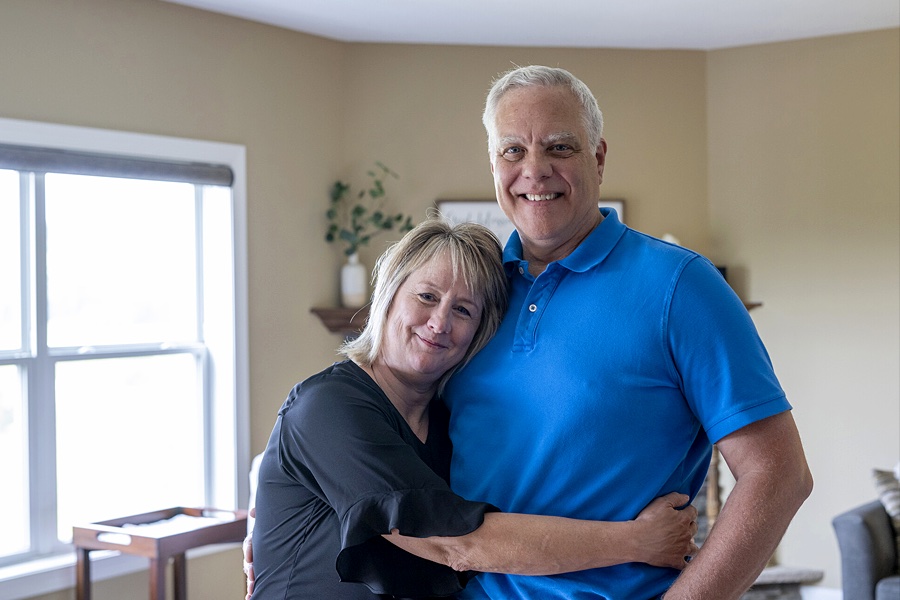
One day in August 2022, John Sauer, then 61, took a three-mile walk with his wife, mowed the lawn, then came inside for a cool drink of water. Seconds later, he was on the brink of death from sudden cardiac arrest.
Statistically, Sauer had one chance in 10 of surviving. But he also had two potent weapons on his side: his wife, Kris Waters, a registered nurse who knew CPR; and the U of M’s Center for Resuscitation Medicine.
Waters and her adult daughter, Lauren, moved Sauer’s 6-foot-3 body onto the floor so Waters could begin chest compressions while Lauren called 911.
But even such a quick response can’t always succeed. After 35 minutes of CPR “the chances of surviving are almost zero,” for a cardiac arrest patient, says Demetris Yannopoulos, founder and director of the center and an M Health Fairview cardiologist.
Yannopoulos and center co-director Jason Bartos, a U of M associate professor of medicine/cardiology, have made it their mission to turn the tables on cardiac arrest. Their secret weapon is ECMO—extracorporeal membrane oxygenation, a procedure in which blood is pumped from the body, run through an oxygenator, then pumped back with its vital load of oxygen. This buys time for the patient to be taken to a hospital for longer-term treatment.
To get ECMO to patients in time, they invented the ECMO vehicle, a fire truck-sized ER on wheels that can meet cardiac arrest patients in the field.
“The truck is essentially a mobile version of a cardiac catheterization lab,” Bartos says. “It has all the tools we would need to be able to put somebody on ECMO and even do some initial diagnostic testing.”
Lifesaving on the road
With the two doctors and other team members on board, the ECMO truck met the ambulance carrying Sauer halfway—at M Health Fairview Southdale Hospital. It was one of several Twin Cities hospitals where the two vehicles could rendezvous and transfer a patient to the truck.
Once Sauer had been hooked up to ECMO, the truck took him to M Health Fairview University of Minnesota Medical Center. There, heart experts cared for him for 12 days, until he left to continue recovering at home.
“I can never pay that back,” says Sauer. “So many people had to do their jobs perfectly for me to be here. I’m so lucky. So, so lucky.”
The U of M has become a global leader in using ECMO as a bridge to survival for cardiac arrest patients. Yannopoulos estimates that he and his U of M and M Health Fairview colleagues have used ECMO more than a thousand times since the Center for Resuscitation Medicine’s founding in 2014.
“When we looked at our data, we saw that if people got to us within 30 minutes, we had nearly 100 percent survival rates,” Bartos says. “But every 10 minutes after that, that rate went down by 25 percent. Every second counts.”
As for Sauer and Waters, they’re planning a February trip to Hawaii to celebrate their 10th wedding anniversary.
- Categories:
- Health
- Health conditions




